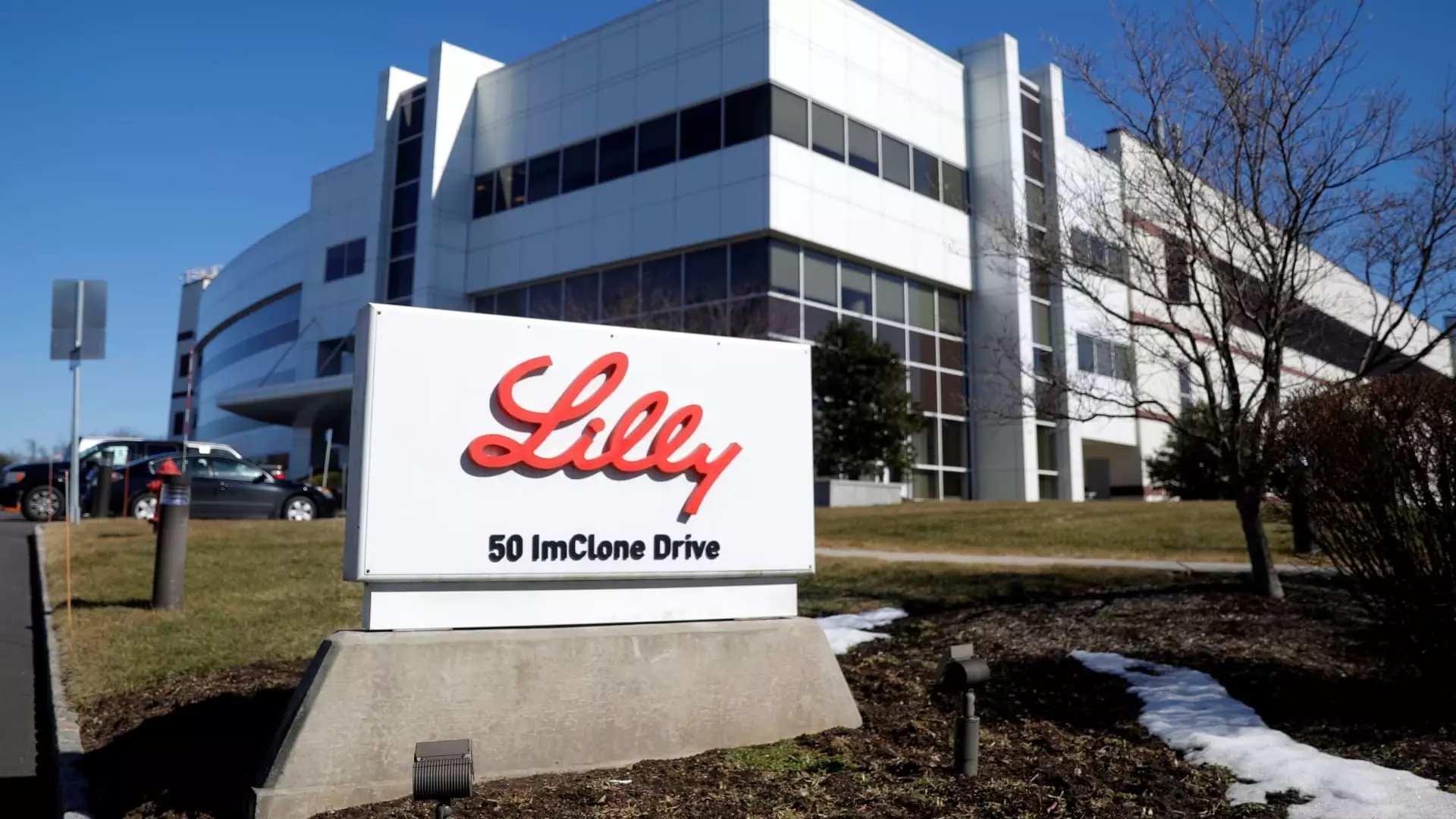The pharmaceutical giant, Eli Lilly, has seen a surge in demand for its weight loss and diabetes treatments over the past year, propelling the company to new heights. The success of their diabetes injection, Mounjaro, and the recently launched obesity drug, Zepbound, has been a significant contributing factor to this upward trajectory. Anat Ashkenazi, the outgoing Chief Financial Officer, has played a pivotal role in managing the revenue windfall and investor optimism surrounding these products. Her departure to join Alphabet as the new CFO on July 31 marks a transition for Eli Lilly, as they strive to continue their success in the competitive pharmaceutical landscape.
While Eli Lilly has experienced tremendous growth, they are not without challenges. Manufacturing an adequate supply of their treatments has been a struggle, leading to nationwide shortages of these drugs. The class of drugs known as GLP-1 agonists, which include Eli Lilly’s products, work by mimicking hormones in the gut to suppress appetite and regulate blood sugar. The market for these drugs is projected to reach $100 billion by the end of the decade, highlighting the immense potential for growth. Despite the challenges, Eli Lilly remains committed to scaling up manufacturing facilities to meet the demand and ensure patients have access to the medications they need.
Eli Lilly’s boom in revenue has enabled the company to make significant investments in expanding their manufacturing capabilities. By reinvesting the cash flow from product sales back into the business, they are focused on building new facilities to increase production capacity. Several manufacturing sites are either under construction or ramping up, with locations in North Carolina, Indiana, Ireland, Germany, and an additional site acquired from Nexus Pharmaceuticals. The recent announcement of a $5.3 billion investment in their Lebanon, Indiana plant further demonstrates Eli Lilly’s commitment to growth and innovation in the pharmaceutical industry.
In addition to expanding manufacturing capacity, Eli Lilly is also addressing barriers to patient access, particularly in the realm of insurance coverage for weight loss drugs. Limited coverage by U.S. commercial insurers has been a roadblock, as some employers and health plans are hesitant to cover the cost of these medications due to their high prices. Eli Lilly is actively working to increase coverage for their products, with Zepbound already seeing a 67% commercial coverage rate as of April 1. The company remains focused on making their drugs accessible to as many patients as possible, recognizing the importance of affordability in improving healthcare outcomes.
Looking ahead, Eli Lilly is at the forefront of research and development in the obesity and diabetes space. Studying the active ingredient in their products, tirzepatide, in patients with various health conditions such as obesity, fatty liver disease, obstructive sleep apnea, chronic kidney disease, and heart failure, the company is aiming to demonstrate the broader health benefits of their treatments. With new guidance allowing Medicare Part D plans to cover obesity treatments with additional health benefits, Eli Lilly is poised to further expand access to their innovative therapies. Addressing misconceptions about obesity as a chronic disease rather than a lifestyle choice is a key focus for the company, as they continue to push boundaries in improving healthcare for all.


Leave a Reply